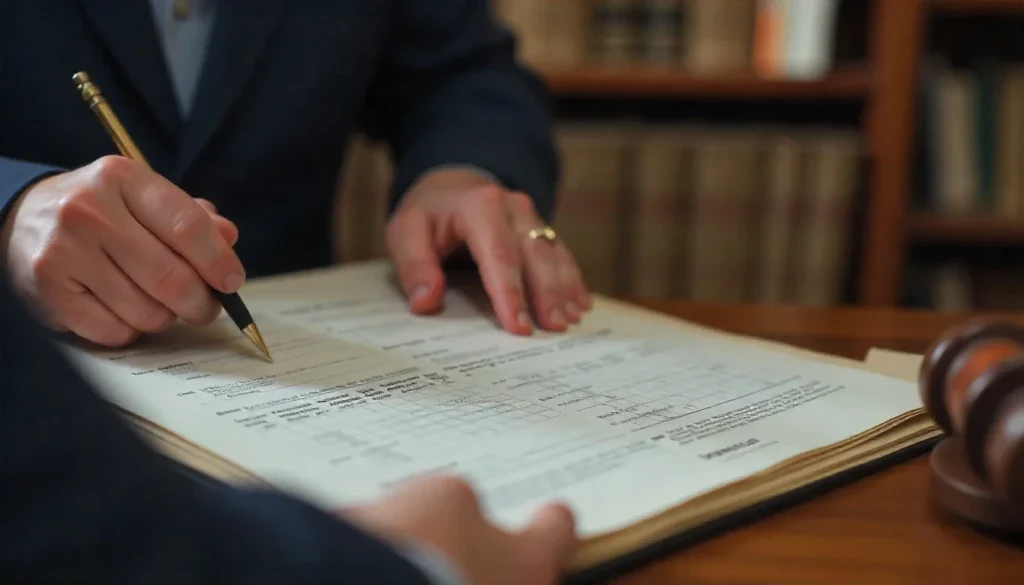Introduction
Divorce is rarely an easy process, but it becomes even more complicated when one spouse refuses to sign the divorce papers. Many people believe that both parties must agree to end a marriage, but that’s not always the case. If your spouse won’t cooperate, you may still be able to get a divorce—though the process will take longer and require legal intervention.
In this guide, we’ll cover:
-
Why a spouse might refuse to sign divorce papers
-
Legal options if your spouse won’t cooperate
-
How to proceed with a contested divorce
-
Alternatives if your spouse can’t be located
-
Frequently asked questions about unwilling spouses and divorce
By the end, you’ll understand your rights and the steps to take if your spouse refuses to sign.
Why Would a Spouse Refuse to Sign Divorce Papers?
Before exploring legal solutions, it helps to understand why a spouse might refuse to sign. Common reasons include:
1. Emotional Resistance
Some spouses may be in denial or hope for reconciliation, refusing to accept that the marriage is over.
2. Financial Motivations
A spouse might delay signing to:
-
Avoid paying alimony or child support
-
Keep shared assets (like the house or retirement funds)
-
Maintain health insurance or other benefits
3. Desire to Control or Punish
In high-conflict divorces, one spouse may use the legal process to drag out proceedings as a form of retaliation.
4. Disagreement Over Terms
If a spouse dislikes the proposed custody arrangement, asset division, or support terms, they may refuse to sign in hopes of renegotiating.
Can You Get a Divorce If Your Spouse Won’t Sign?
Yes. While an uncontested divorce (where both spouses agree) is faster and cheaper, you can still obtain a divorce even if your spouse refuses to sign. The process becomes a contested divorce, meaning a judge will decide the terms.
How the Legal System Handles Uncooperative Spouses
-
Proper Service of Divorce Papers
-
If your spouse avoids signing, you must legally serve them with divorce papers through:
-
A process server
-
Certified mail (if allowed in your state)
-
Publication (if the spouse can’t be located)
-
-
-
Waiting Period & Default Judgment
-
After being served, your spouse has a set time (usually 20-30 days) to respond.
-
If they don’t, you can request a default judgment, allowing the divorce to proceed without their input.
-
-
Contested Divorce Hearing
-
If your spouse responds but still refuses to agree, the case goes to court.
-
A judge will decide on:
-
Asset division
-
Child custody & support
-
Spousal support (alimony)
-
-
Steps to Take If Your Spouse Refuses to Sign
1. Attempt Mediation or Negotiation
Before heading to court, consider:
-
Mediation: A neutral third party helps negotiate terms.
-
Collaborative divorce: Both spouses work with attorneys to reach an agreement.
2. Ensure Proper Legal Service
If your spouse ignores the papers:
-
Hire a process server to deliver documents in person.
-
File for alternative service (e.g., posting in a newspaper) if they can’t be found.
3. Request a Default Divorce
If your spouse doesn’t respond within the deadline:
-
File a Motion for Default Judgment.
-
The court may grant the divorce based on your terms.
4. Prepare for a Contested Divorce Trial
If your spouse fights the divorce:
-
Gather evidence (financial records, communication logs).
-
Hire a family law attorney to argue your case.
-
Attend hearings where a judge will make final decisions.
What If You Can’t Locate Your Spouse?
If your spouse is missing or avoiding service:
-
Try all methods of contact (last known address, relatives, social media).
-
File a motion for service by publication (divorce notice in a newspaper).
-
Prove to the court that you made reasonable efforts to find them.
Myths About Refusing to Sign Divorce Papers
❌ Myth: “If my spouse doesn’t sign, we’re still married forever.”
✅ Reality: Courts can grant a divorce even without their signature.
❌ Myth: “I can’t remarry unless my ex signs the papers.”
✅ Reality: Once a judge finalizes the divorce, you’re free to remarry.
❌ Myth: “Refusing to sign gives me more leverage in court.”
✅ Reality: Judges frown on delaying tactics and may rule against an uncooperative spouse.
Frequently Asked Questions (FAQs)
Q: How long does a divorce take if my spouse won’t sign?
A contested divorce can take 6 months to several years, depending on court backlogs and complexity.
Q: Can I force my spouse to sign divorce papers?
No, but you can proceed legally without their signature.
Q: Will refusing to sign affect child custody?
Possibly. Courts prioritize the child’s best interests, and obstructionism may hurt a parent’s case.
Q: What if my spouse lives in another state/country?
You can still file, but serving papers may require additional legal steps.
Conclusion
While a reluctant spouse can delay the divorce process, they cannot stop it indefinitely. By following legal procedures—proper service, court hearings, and possibly a default judgment—you can still obtain a divorce.
If you’re facing this situation, consult a family law attorney to navigate the complexities and protect your rights.
Need Legal Help?
If your spouse refuses to sign divorce papers, don’t navigate this alone. Contact a family law attorney today to explore your options and move forward with your life.


















